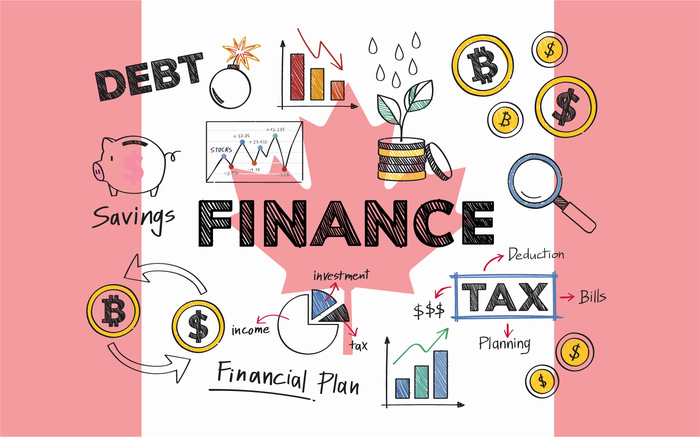Saving money on monthly bills and expenses is a goal that many people strive for. By effectively managing your finances and finding ways to reduce costs, you can achieve significant savings that can be allocated towards your financial goals or used to enhance your quality of life. In this article, we will explore various strategies and tips to help you save money on your monthly bills and expenses.
Evaluate Current Expenses
To begin your journey toward saving money, it is crucial to evaluate your current expenses. Firstly, creating a comprehensive list of all your monthly bills and expenses. This list should include items such as rent or mortgage payments, utility bills, transportation costs, groceries, subscriptions, and any other regular expenses you have.
Once you have your list, analyze each expense carefully. Look for areas where you can potentially reduce costs. It could be anything from finding a cheaper alternative to negotiating better deals or simply cutting out unnecessary expenses.
Reduce Utility Bills
Utility bills, such as electricity, water, and heating/cooling costs, can often be significant contributors to your monthly expenses. Below are some tips on how to reduce these bills:
1 .Energy-saving tips for reducing electricity bills:
- Switch to energy-efficient light bulbs
- Unplug electronics when not in use
- Set your thermostat to an optimal temperature
- Use natural light and ventilation whenever possible
2. Water-saving techniques to lower water bills:
- Fix any leaks promptly
- Install water-efficient fixtures
- Take shorter showers and turn off the tap while brushing your teeth
- Collect rainwater for outdoor use
3. Strategies to minimize heating and cooling costs:
- Insulate your home properly
- Use programmable thermostats to regulate temperature
- Close curtains or blinds during extreme weather conditions
- Dress appropriately for the season to reduce reliance on heating or cooling systems
- Trim Down Transportation Expenses
Transportation costs, including fuel expenses and vehicle maintenance, can quickly add up. Below are few ways to save money on transportation:
1. Explore alternative transportation options:
-
- Consider walking or cycling for short distances
- Utilize public transportation, if feasible
- Investigate car-sharing or car rental services for occasional needs
2. Carpooling and ridesharing to cut down on fuel expenses:
-
- Coordinate with colleagues or neighbors to carpool
- Explore ridesharing apps to share rides and costs
3. Tips for maintaining your vehicle and saving on maintenance costs:
-
- Perform regular maintenance tasks, such as oil changes and tire rotations, on schedule
- Keep your tires properly inflated for better fuel efficiency
- Compare prices and shop around for the best deals on repairs and servicing
Cut Costs on Housing
Costs on housing, for example rent or mortgage payments, often make up a quite big portion of your monthly budget. Consider the following strategies to save money on housing:
1. Consider downsizing or finding a cheaper rental:
-
- Evaluate if your current living space is larger than necessary
- Explore the possibility of downsizing to a more affordable option
- Research the rental market for more cost-effective alternatives
2. Negotiate rent or mortgage rates:
-
- Speak with your landlord or mortgage provider to negotiate better terms
- Research the current market rates and use that information during negotiations
3. Implement energy-efficient measures to lower utility bills:
-
- Upgrade to energy-efficient appliances
- Improve insulation and seal any air leaks
- Start using renewable energy sources, such as solar panels
Save on Grocery Shopping
Grocery shopping is one way where you can make substantial savings. Follow these tips to reduce your grocery expenses:
1. Create a budget and meal plan:
-
- Determine a realistic budget for your groceries
- Plan your meals in advance to avoid unnecessary purchases
- Create and stick to a shopping list while at the store
2. Take advantage of sales, coupons, and discounts:
-
- Keep an eye out for sales and stock up on non-perishable items when prices are low
- Use coupons and loyalty cards to get additional discounts
- Consider shopping at discount stores or buying in bulk
3. Opt for generic brands and avoid impulse buying:
-
- Try generic or store brands instead of expensive name brands
- Avoid shopping when hungry to prevent impulse purchases
- Compare prices and read product labels to make informed decisions
Review Subscriptions and Memberships
Reviewing your subscriptions and memberships can reveal potential areas for savings. Take the following steps:
1. Evaluate the necessity of each subscription or membership:
-
- Determine if you are actively using and benefiting from each service
- Cancel any subscriptions or memberships that are no longer necessary
2. Downgrade unnecessary services:
-
- Downgrade to a lower-tier subscription plan if available
- Explore bundle options that offer multiple services at a reduced price
Utilize Technology for Savings
Technology can be a valuable tool for finding deals, tracking expenses, and setting financial goals. Here are some ways to leverage technology for savings:
1. Use apps and websites to find deals and discounts:
-
- Install apps or browser extensions that provide coupons or alert you to sales
- Visit websites that aggregate deals and discounts
2. Monitor your expenses and set financial goals with budgeting tools:
-
- Use budgeting apps or software to track your expenses and identify areas for improvement
- Set financial goals, such as saving a specific amount each month, and track your progress
Negotiate with Service Providers
Don’t be afraid to negotiate with service providers to get better deals and lower rates:
1. Negotiate better deals with internet, cable, and phone providers:
-
- Research competitive offers from other providers and use that information to negotiate
- Contact your current provider and ask for discounts or promotional offers
2. Contact insurance companies for potential rate reductions:
-
- Review your insurance policies and compare rates from different providers
- Contact your insurance company to get any available discounts or rate reductions
Develop Frugal Habits
In addition to specific cost-cutting strategies, developing frugal habits can lead to long-term savings:
1. Embrace a minimalist lifestyle:
-
- Declutter your living space and focus on owning and buying only what you truly need
- Avoid excessive consumption and prioritize experiences over material possessions
2. Practice conscious spending and avoid impulse purchases:
-
- Before buying goods or services, ask yourself if it is essential or if there are alternatives
- Delay gratification by waiting before buying non-essential items
3. Find free or low-cost entertainment options:
-
- Explore free community events, local parks, and libraries for entertainment
- Utilize streaming services or borrow movies and books from libraries
FAQs
1. Can I save money on my monthly bills without compromising on quality?
Absolutely! There are often opportunities to save money without sacrificing quality. For example, you can negotiate better deals with service providers or find alternative options that offer comparable services at a lower cost.
2. How much can I expect to save by implementing these strategies?
The amount you can save will vary depending on your current expenses and the strategies you implement. However, it is not uncommon to save a significant percentage of your monthly bills and expenses by making conscious choices and finding ways to cut costs.
3. Are these strategies applicable to all income levels?
Yes, the strategies mentioned in this article can be applied regardless of your income level. Saving money is a universal goal, and there are always opportunities to reduce expenses and make more informed financial decisions.
4. How long does it take to see the impact of these strategies on my savings?
The timeline for seeing the impact of these strategies on your savings will depend on various factors, including the specific strategies you implement and the size of your monthly bills and expenses. In some cases, you may see immediate savings, while in others, it may take a few months to notice a significant difference.
5. Can I continue to enjoy my lifestyle while saving money on monthly bills?
Absolutely! Saving money on your monthly bills doesn’t mean you have to sacrifice your lifestyle. By making conscious choices and finding areas to cut costs, you can maintain a comfortable lifestyle while also increasing your savings.




